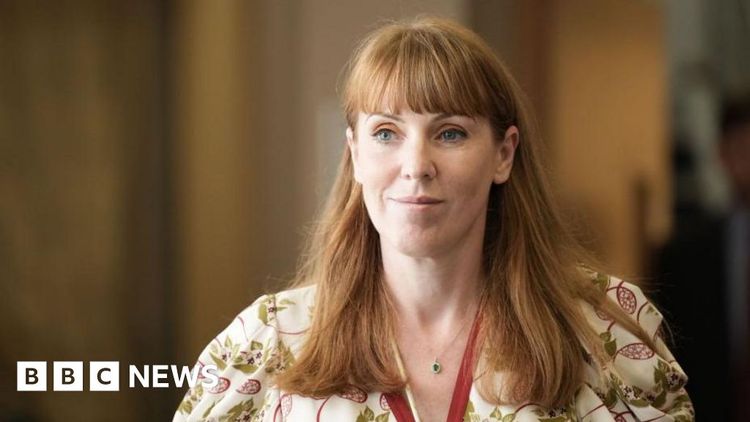Rayner suggests tenants will not be able to buy new council homes

The deputy prime minister has expressed her desire to prevent the sale of new council houses in England through the Right to Buy program.
Angela Rayner informed the BBC that the government plans to implement limitations on the construction of new social housing in England to prevent a reduction in the existing housing supply.
For many years, the Right to Buy program has enabled tenants of social housing to purchase their residences, frequently at a considerable reduction in price.
Ms. Rayner mentioned that the nation is dealing with a severe "crisis of homelessness" while revealing £10 million in funding aimed at assisting those living on the streets during the winter months.
The Right to Buy program was launched by Margaret Thatcher’s Conservative administration in 1980. Since its inception, over two million properties have been sold.
At first, the policy was praised for boosting homeownership rates, but lately, it has been criticized for playing a role in the growing issue of homelessness.
The Labour Party has committed to constructing the highest number of social and council homes since the end of World War Two. Ms. Rayner shared with the BBC that she aims to ensure these newly constructed homes remain within the system.
"We're going to implement limitations to ensure we don't lose those houses... we want to preserve that inventory."
Later this year, officials will begin a discussion on the topic.
The Right to Buy scheme was reintroduced in 2012 by the coalition government led by the Conservatives, which raised the amount of discount available to tenants purchasing their homes.
The current figure is £102,400 throughout England, while in London, it is set at £136,400.
In 2007, Angela Rayner purchased her own home using the Right to Buy program.
Since taking office, the Labour party has announced plans to lower the discount range to between £16,000 and £38,000, varying by location. In last month's budget, new policies were introduced that enable local councils to retain all revenue generated from the sale of council houses. This approach was also adopted by the previous Conservative government for a two-year period, set to continue until March 2024.
In the past, they were required to send a portion of every sale to the government.
The Right to Buy scheme was discontinued in Scotland in 2016, and in 2019, the Welsh government also put an end to this policy.
Angela Rayner described the situation regarding homelessness in England as a “catastrophic emergency.”
During her trip to a shelter for individuals experiencing homelessness in South London, she encountered some of the people who have recently been supported in leaving the streets. Recent statistics reveal that 4,780 individuals were observed sleeping outdoors in the city from June to September this year, setting a new record.
Stephen Richards, 58, spent weeks living outdoors in gardens and forests before finding his way to the center. Having worked as a chef for many years, he explained that strained family relationships led to him losing his home, and the high cost of rent made it difficult for him to find a new place to live.
"Long ago, a space in someone's home was referred to as a lodger," he stated.
"Now they refer to them as en-suite rooms and are asking £1,200 per month for a bedroom. Prices have gotten out of hand."
The Deputy Prime Minister pointed out that the Budget has allocated £233 million to combat various types of homelessness, which will increase the total funding to nearly £1 billion for the 2025-26 period.
The government has committed £10 million to address homelessness, stating that these funds will be allocated directly to councils facing the greatest need.
The amount of families residing in temporary housing has reached an all-time high, with over 150,000 children affected. Ms. Rayner pointed out that simply recognizing the issue won’t solve it quickly, and that addressing homelessness will require collaboration between various government departments.
An important priority is to lower the number of individuals who are facing homelessness right from the start.
Emma Haddad, the CEO of the homeless charity St Mungo's, expressed her optimism regarding the government's commitment to advancing the Renters' Rights Bill.
The legislation will put an end to Section 21 evictions in England, which currently allow landlords to evict tenants without needing to provide any justification.
"Ms. Haddad stated that a significant number of individuals facing homelessness are coming from the private rental sector, with Section 21 evictions being a major contributing factor. This change will make a substantial difference."



















































